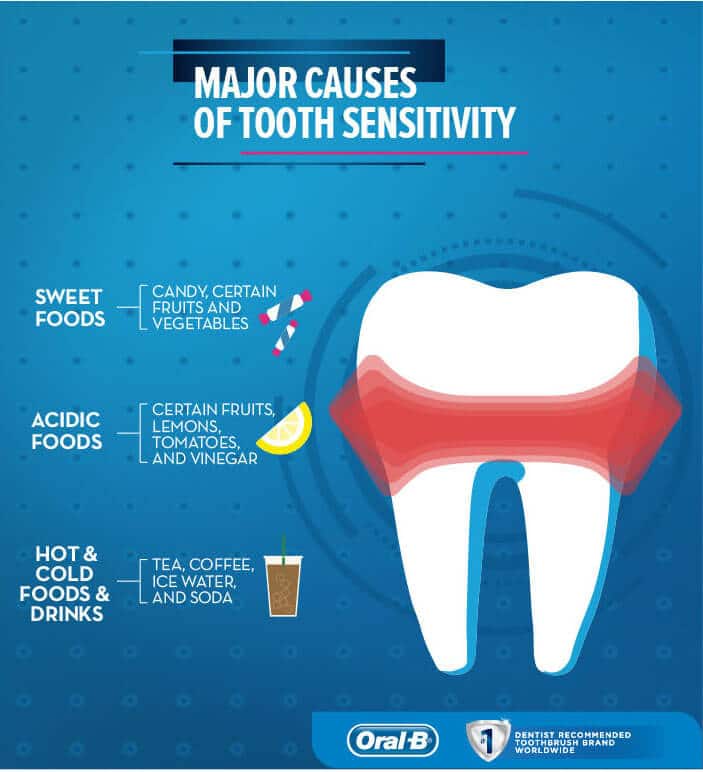No matter how tough you are, tooth sensitivity can make anyone, well, sensitive. As uncomfortable as sensitive teeth can be, luckily there are some pretty straightforward ways to overcome this common problem.
The Academy of General Dentistry estimated that at least 45 million Americans deal with sensitive teeth, and found that the condition is more common in women than in men. The most common triggers for this brief shooting pain are hot and cold food or drink, cold air, and even brushing your teeth!
Healthy teeth are protected on the surface by a layer of enamel, the strongest substance in the human body. And under your gums is another substance, called cementum, that protects the roots of your teeth. Beneath that enamel is dentin, an almost porous substance that contains microscopic tubules.
When the enamel or cementum is worn down, the tubes and channels in dentin allow hot, cold, acidic and sweet food and drinks to reach the nerves inside the tooth, creating that uncomfortable sting of pain.
Untreated cavities and cracked teeth can also leave the dentin exposed and in this case, sensitivity may be a sign of something more serious with your tooth. Gum disease can also leave you exposed to sensitivity at the less protected roots.
Luckily there are many over-the-counter toothpastes to choose from that can help desensitize your teeth. Just be sure to select one that bears the ADA seal of approval to be certain it’s safe for you. It can sometimes take up to a month for you to notices changes from a toothpaste designed for sensitive teeth, so give yourself time to adjust.
If after a month, you’re still having trouble with sensitivity, it’s time to come in and see a dentist. We have more options in the office for managing your sensitivity such as fluoride varnishes, bonding resins, and even more extensive options for advanced gum tissue loss like gum grafts.
Sensitive teeth can also be a symptom of a bigger problem and could require more in-depth treatment such a root canal. While root canals can seem scary, it’s the only treatment which is shown to do away with sensitivity for good. It all depends on your individual situation so consult with your dentist to find out which treatment course is best for you.

Avoiding sensitivity in the future is easy once you have the right tools. Make sure your oral health kit is fitted with what you’ll need to keep your teeth sensitivity-free:
And while sensitive teeth are never fun, treating them is typically simple and can be done at home. Just remember that if your sensitivity persists to give us a call so we can get you in and get you feeling better.